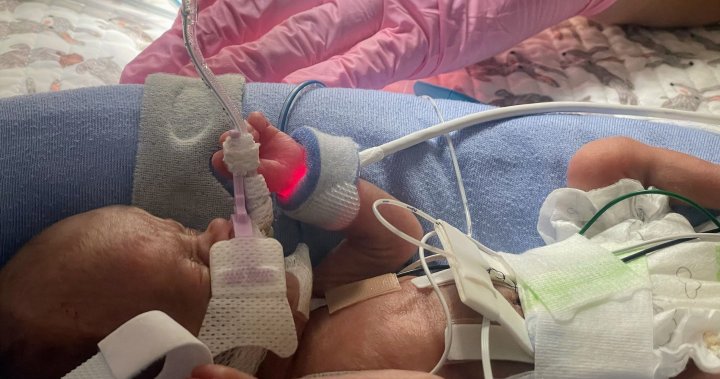
Montreal Children’s Hospital looks to future with wireless vital sign technology
Global News
The hospital is on its way to becoming one of the first medical institutions in the world to have wireless technology to monitor vital signs of premature infants.
The future is near at the Montreal Children’s Hospital. Medical experts are testing smart hospital technology. Wireless vital signs monitors are being tested in the neonatal intensive care unit.
Every year at the Montreal Children’s Hospital, close to 900 newborns and premature babies depend on wired vital-sign monitors to survive. The monitors measure heart rate, oxygen saturation, temperature, and other vital signs, but can be very intimidating to new parents.
“What we want is to eliminate those wires and those cables by using Bluetooth technology,” said Dr. Guilherme Sant’Anna, a Neonatologist at the Montreal Children’s Hospital and one of the principal investigators of the Smart Hospital Project.
The wireless technology will not only be able to send the same information back to the monitors, but will provide even more data.
“The wireless sensors that we are attaching have more inside the patch that can give movements of the baby, position of the baby, blood pressure, temperature in one patch,” said Dr. Sant’Anna.
Currently, critically ill newborns in the NICU have five to ten wires attached to their skin, which limit their movement and make it difficult for parents to cuddle and bond with their babies during a critical time of their development.
“Sometimes they hold the baby and a cable gets disconnected or breaks or touches the floor and it can get infected,” said Dr. Sant’Anne.
“So it is a situation that sometimes prevents or decreases the number of times parents hold their babies and babies need their parents,” he added.











